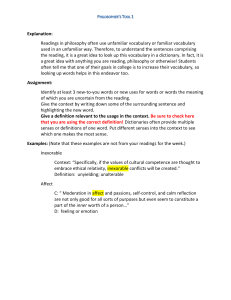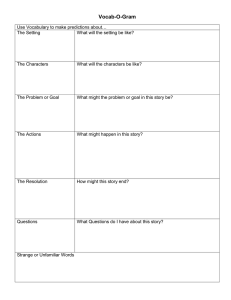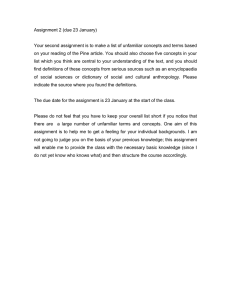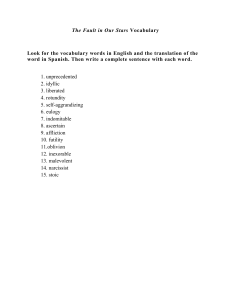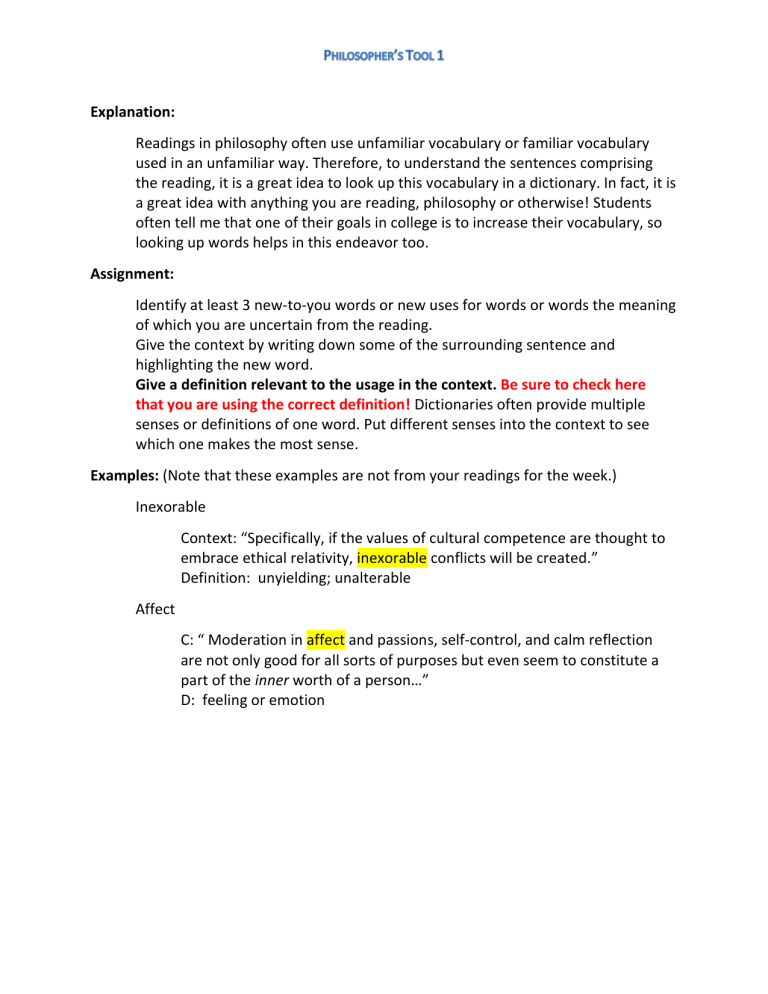
Explanation: Readings in philosophy often use unfamiliar vocabulary or familiar vocabulary used in an unfamiliar way. Therefore, to understand the sentences comprising the reading, it is a great idea to look up this vocabulary in a dictionary. In fact, it is a great idea with anything you are reading, philosophy or otherwise! Students often tell me that one of their goals in college is to increase their vocabulary, so looking up words helps in this endeavor too. Assignment: Identify at least 3 new-to-you words or new uses for words or words the meaning of which you are uncertain from the reading. Give the context by writing down some of the surrounding sentence and highlighting the new word. Give a definition relevant to the usage in the context. Be sure to check here that you are using the correct definition! Dictionaries often provide multiple senses or definitions of one word. Put different senses into the context to see which one makes the most sense. Examples: (Note that these examples are not from your readings for the week.) Inexorable Context: “Specifically, if the values of cultural competence are thought to embrace ethical relativity, inexorable conflicts will be created.” Definition: unyielding; unalterable Affect C: “ Moderation in affect and passions, self-control, and calm reflection are not only good for all sorts of purposes but even seem to constitute a part of the inner worth of a person…” D: feeling or emotion WORD highlighted in its context from the text DEFINITION
